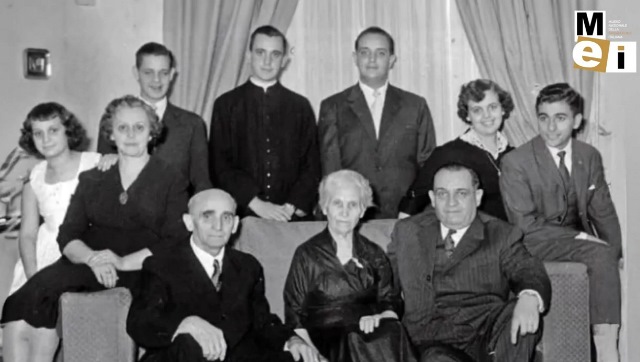Francis, a Pope son of emigrants: “He has always been proud of his Italian origins”
GENOA – Until the very end, he reminded the powerful of the world – remaining unheard – of the need to welcome and the importance of brotherhood among peoples: fundamental values for him, son of migrants before being a Catholic.
And precisely to underline this peculiarity of Pope Francis, alias Jorge Mario Bergoglio, the National Museum of Italian Emigration (MEI) has decided to remember the recently deceased Pontiff with a special tribute entitled “Francis, a Pope son of emigrants”, screened from today until Saturday 26 April (the day of the funeral in Vatican City) in the Multimedia Exhibition Hall of the museum (located in Genoa) and also making it available online on the MEI YouTube channel (you can also watch it here below). A gesture of gratitude and affection towards the Holy Father, as underlined by the Italian press agency AISE in an article: a tribute to a Pontiff who during his mandate never forgot his Italian origins and his experience as the son of emigrants, testifying until the end to the value of hospitality, dignity and brotherhood between peoples. “Pope Francis has always been proud of his Italian origins” recalls Paolo Masini, president of the MEI Foundation. “A legacy that has marked many aspects of his pontificate, leaving an indelible mark that we must all take care of. With this small tribute, we want to remember his history and his universal message…”.
The clip – narrated by Massimo Wertmuller, and created in collaboration with the MUDEM (Museum of the Coin of the Bank of Italy) – features him, Jorge Mario Bergoglio, born in 1936 in Buenos Aires, son of Mario Bergoglio and Regina Maria Sivori: Mario emigrated from Italy to Argentina with his family, Regina Maria was daughter of Italian emigrants in the same country.
The Pope’s paternal grandparents, Giovanni Bergoglio and Rosa Vasallo, lived in Bricco Marmorito di Portacomaro Stazione, in the province of Asti, Italy, where they first tried agriculture and then commerce, without success. The difficult economic conditions, combined with the prospects offered by relatives who had already emigrated, pushed the family to leave. Thus, in 1929 they embarked in Genoa on the steamship “Giulio Cesare”, headed for Buenos Aires. A courageous choice that marked the destiny of the Bergoglio family and that certainly contributed to shaping the thinking of the future Pope Francis, deeply attentive to the themes of migration, the peripheries and the encounter between peoples.
On the maternal side, however, the parents of the Pope’s grandfather – Francisco Sivori Sturla, born in Argentina – were originally from Santa Giulia di Centaura, a hilly hamlet of Lavagna in the province of Genoa, while the grandmother – Maria Gogna, born in Italy – was originally from the hamlet of Teo di Cabella Ligure, in the province of Alessandria (Italy). Francesco’s mother, Regina Maria Sivori, was therefore born in Buenos Aires, just like her Francesco. Children of migrants.
In the pic above, a family photo of Pope Francis (who is standing second from the left): he was born in Buenos Aires in 1936 to an Italian-Argentine mother and an Italian father (image from the documentary of the National Museum of Emigration – MEI)



